#constantin heger
Text
getting a dip pen is one of the best decisions of my life. now i can pretend to be a 19th century englishwoman who writes heartfelt letters to her married belgian professor
#a quill is hard to obtain. this will do#important question: any mutuals here who's interested in penpalling?#for real message me if you're interested ! we can send knick knacks too like tea bags and whatever#charlotte brontë#constantin heger#villette#jane eyre#classic lit memes
12 notes
·
View notes
Text
okay hear me out: Paul Mescal as Constantin Heger in a Charlotte Brontë biopic

#just walk with me#he just needs a fuller beard and he’d be perfectt#charlotte brontë#charlotte x heger#constantin heger
5 notes
·
View notes
Text
But Really?
Charlotte's second era in Brussels was apparently unhappy, due to her homesickness and her attachment to Monsieur Heger. In a letter to her friend Ellen Nussey, she drew herself next to the Hegers:

This is displayed at the Haworth Parsonage museum (it's my own pic, taken when I went there). Reminds you of something? In the book, Jane draws Blanche Ingram as a beautiful young woman and herself as a plain little girl. This is before she ever sees Blanche; the portrait is drawn solely from Mrs Fairfax's description. It's a rather flowery description, not really in the style of a practical, uncomplicated housekeeper.
I'm not going to get into any speculating about whether anything took place between Charlotte and Heger. Most likely it was just unrequited love on her part. Whatever the case may have been, dude would have realised which side his bread was buttered.
Constantin Heger and his wife had six children. They were still having them while Charlotte was at the pensionnat. She returned to Haworth in January 1944.
The first book Charlotte wrote was titled The Professor. (In which the main character is mistreated by his brother, gets a teaching job at a boarding school in Belgium, ran by a woman who he initially is attracted to, but finds out she is deceitful. He starts teaching a young female aspiring teacher whom he falls in love with. The scheming directress of the school actually falls in love with him but he gets another job elsewhere and marries the young teacher-student.) It was rejected by the publishers and only released posthumously. Jane Eyre, the second book she wrote, met with more success.
Later, Charlotte published Shirley and Villette. The latter draws heavily from her time in Brussels, Charlotte used some parts of The Professor and rewrote it into Villette. The villainess is once again a headmistress of a boarding school, who schemes to marry the professor M. Paul Emanuel. Who is really Constantin Heger and Madame Heger is the conniving Madame Beck, but just because they appear in this book doesn't mean they didn't appear in Jane Eyre. Charlotte totally gave herself away by inserting the age difference between Rochester and Bertha. It's not even that it's unnecessary to the narrative, it feels so tacked on that I suspect she added it later, maybe after she had already written the whole book. Hence it contradicting the earlier item of Bertha's older brother Richard being the same age as Rochester.
I've not read any of Charlotte's other books. I do have all the Bronte works as audio plays in my Audible library, though, and it seems to me that Shirley and Villette are better than Jane Eyre. But I don't know, like I said, I've not read the actual books, so I shouldn't judge. Villette has a dark, melancholy atmosphere. Not surprising, written after the death of her siblings, Charlotte's grief must have come through.
So where does the xenophobia come from?
Fuck knows. But this just proves that being in love with someone from a different culture doesn't exempt you from being discriminative of the culture. "I'm not racist I have black friends". That dig about peasant women is telling. Why it had to be in the book at all, I cannot fathom. It's just like the whole Celine mess. It didn't add anything of value. She's like a typical Brexit supporter, feeling all superior about herself.
It is quite the twist of fate that Brussels became the capital of the EU.
2 notes
·
View notes
Text
I'm sort of obsessed with Charlotte and Emily Bronte's time in Brussels at the Pensionnat Heger school, and I need to win a lot of money to produce somebody talented to write the screenplay. The only casting I feel solid about right now is Laure Calamy as Claire Zoe Heger, the school's directress and the long-suffering wife of Constantin Heger, the professor Charlotte becomes obsessed with.
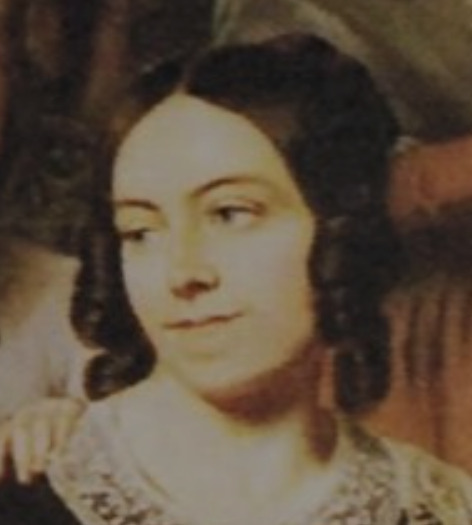

Mdme Heger was the inspiration for Madame Beck, the villainess in Charlotte's Villette. This poor woman deserves a more just portayal. Here she was running a whole school, putting up with her husband flirting with his students, and raising all of their children (she was pregnant with like the fourth of sixth when the Brontes arrived). She didn't have time for any of Charlotte's shit.
Meanwhile Emily was in the background playing piano and pining for home, just like the asexual misanthropic darling we all love.
For real, though, I'm not sure who could play Charlotte and Emily. They're a tall order, what with being English and mostly fluent in French. I'm thinking maybe Maisie Williams or Samantha Hanratty as Charlotte; although as I haven't seen Maisie play anyone but Arya I don't know if she could pull off brilliant, tortured, jealous Charlotte, plus I don't know if she can speak French. Hanratty definitely could portray all of Charlotte's complexities, but she's American, and I don't know if she could do a proper Northern English accent along with speaking French.


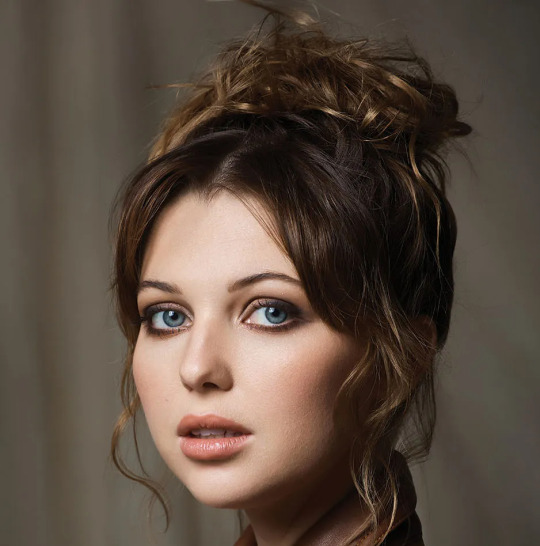
All I can come up with for Emily is Isabelle Fuhrman, but again, American, and no idea if she can speak French.
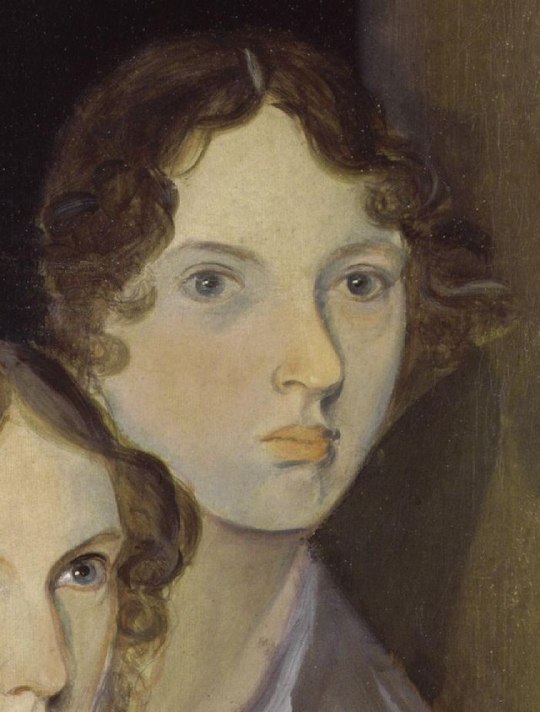

No clue who could play Constantin. I don't think you can improve on Xavier Depraz in Les soeurs Bronte but that was 44 years ago and he's sadly dead.
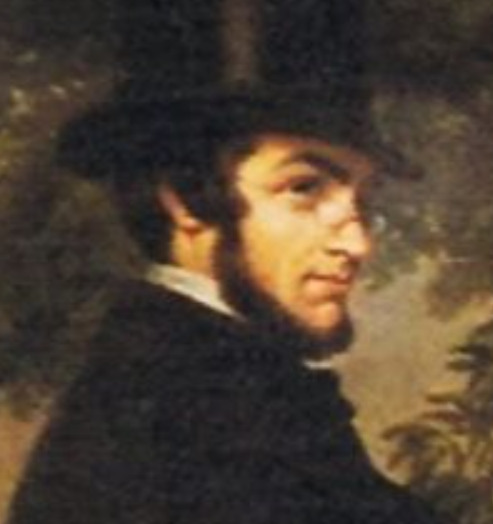
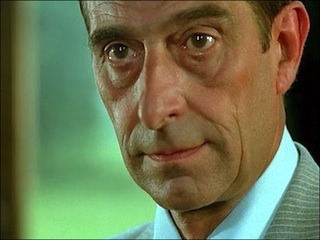
But anyway, someone please write this miniseries for me and we'll figure it all out later, please and thank you.
#white people shit#charlotte bronte#emily bronte#the bronte sisters#claire zoe heger#constantin heger#pensionnat heger
1 note
·
View note
Text
okay, so here’s my issue with the woman writer biopic genre and the “she fell in love and her relationship with a man directly inspired and enabled her to write her famous book(/s)!” tendency (aka the worstttttttt)--
they did it with austen! they did it with emily bronte! in both cases, by truly just making up some randomness!
so i ask you--
why not do this with charlotte bronte, considering her thing for constantin heger DID to some degree inspire mr. rochester (and m. paul in villette)??? like, if you want an actual example of this phenomenon actually happening, it’s right there!!!!! make that movie!!!! WHY NOT????
i’m gonna make that movie. as soon as i figure out how to make a movie, it’s over for those fools!
#god i'm so annoyed at this#why didn't you just make the charbro movie instead frances o'connor?????#also my version of the charbro movie will be fully unhinged#BUCKLE UP PUPS#dollsome's deep thoughts#charbro
33 notes
·
View notes
Text
Ya know what’s major Stede behavior?
Zoë Heger finding torn up letters between Charlotte Brontë & her husband, Constantin Heger, then SEWING them back together to read them.
Big JealousStede vibes; Ed would NEVER but Stede would definitely sew letters together rather than talk about his insecurities hah
5 notes
·
View notes
Text
Jane Eyre Penguin Classics Introduction
The Penguin Classics intro to Jane Eyre was written by Dr Stevie Davies.
Much of the following text is simply copying, or slightly paraphrasing Davies.
The politics of Jane Eyre
The novel is narrative of power and conflict. It was written in 1847 while the universal suffrage and equal rights movements in in full swing. The conservative ruling classes saw this as a threat to civilization itself. The Quarterly Review denounced the novel's "murmuring against the comforts of the rich and the privations of the poor involves a proud and perpetual assertion of the rights of man, for which we find no authority either in God's word or in God's providence".
The reaction was due to Jane Eyre's passionate self-assertion: 'I care for myself. The more solitary, the more friendless, the more unsustained I am, the more I will respect myself.' She demands to know, 'Do you think I am an automaton? A machine without feelings? And can bear to have my morsel of bread snatched from my lips...?' She claims to be her employer's equal and he cannot deny it. Jane Eyre's vow to 'keep the law given by God; sanctioned by man' is founded on and secondary to her sense of sovereign self-worth. Individual human rights therefore lie at the center of the ethic of Jane Eyre.
Charlotte Bronte was no revolutionary. She was a Tory and an Anglican, but she was a working woman and spoke to the injustices of her world. The Saturday Review had written that "marriage was a woman's profession and therefore an unmarried woman 'failed in business'. Governesses were paid poorly because the wares they sell are worthless."
But the novel refuses deference to money and insists on the value and dignity of honest labor. Servants and dependents, quiet as they may be on the outside, watch, judge, and curse their 'betters'.
Jane's economic progress is a parable of self-help. She isn't a servant, but neither is she an employer.
Conditions of her employment are a subject of discussion between her and her employer. There is discussion of the current dehumanizing employer-employee roles. She, as a 19 year-old, informs her 'master' that no freeborn would submit to insolent treatment from an employer. The reply is 'Humbug! Most things freeborn will submit to anything for a salary.' Economic relations are radically questioned.
There is a dialogue about submission and rebellion, the struggle for justice and the duty to endure. Chapter 2 begins with, 'I resisted all the way... like any other rebel slave, I felt resolved in my desperation to go all lengths.' 'How dare I, Mrs Reed? How dare I? Because it is the truth', the outraged child bellows.
Jane and the Self
The name Eyre suggests 'heir', 'air', 'e'er', 'err', 'Eire', and rhymes with 'where?'. In a novel of many wanderings, it is possible for Jane to 'err' from her way. As an 'heir', what is her inheritance? Whose 'heir' is she?
'My master': Power, sexuality, and marriage
The most complex and contradictory aspect (at least in modern eyes) of Jane Eyre is its treatment of gender relations and marriage. Jane calls Rochester her master with relish. But she repudiated Brocklehurst, John Reed, and St John Rivers as masters. Davies writes that the feminist assertion of female autonomy alternates with a craving to melt into and become one with the beloved 'master'.
In the bible, Davies notes, Christ is the master, both loved and revered. Rochester is Jane's literal master, as her employer and a member of the landed gentry. But Jane's use of the word is sexually charged. It is used as a term of endearment and a sign of her attraction. Bronte wrote of her schoolmaster, Constantin Heger, 'the only master I have ever had.' Rochester is no less her 'master' when she returns as his independent equal.
But the novel confronts the idea of mastery. Rochester's despotic behavior towards her is not to her taste. She asserts not only equality, but superiority, 'I am better than you- let me go!' Rochester acknowledges this when he says 'I was your equal at 18.' But then he says later on 'you please me and master me'. When she returns to Ferndean, he is contrite.
The dynamic gives Jane her energy, and she tells St John, 'I have never known any medium in my dealings with positive, hard characters.... between absolute submission and determined revolt.'
Davies writes: Egalitarian marriage, in which the woman's very smallness becomes a prop to the otherwise too dominant male, is Jane Eyre's ideal. Even now, this sentence seems odd to me, in that I read prop naturally as a mere thing in a scene. But I believe it meant to be understood as a the thing that supports. So that the woman's smallness is the thing that holds up- in the sense of counterbalances- an otherwise dominant male. I'd probably want some examples of this in order for it to make more sense to me, but the writer is clearly saying that this is the novel's idea of an ideal marriage.
1 note
·
View note
Text
i love charlotte brontë so much and i’m reading an autobiography of her. but reading her life it’s devastating my heart in a way i didn’t expect at all! why is it so tragic…and i’m not even at the point where she meets constantin heger…….
0 notes
Text
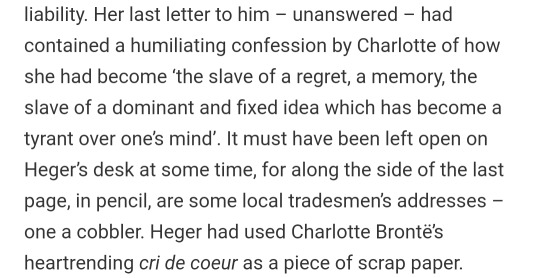
hope he's in hell!!!
12 notes
·
View notes
Photo
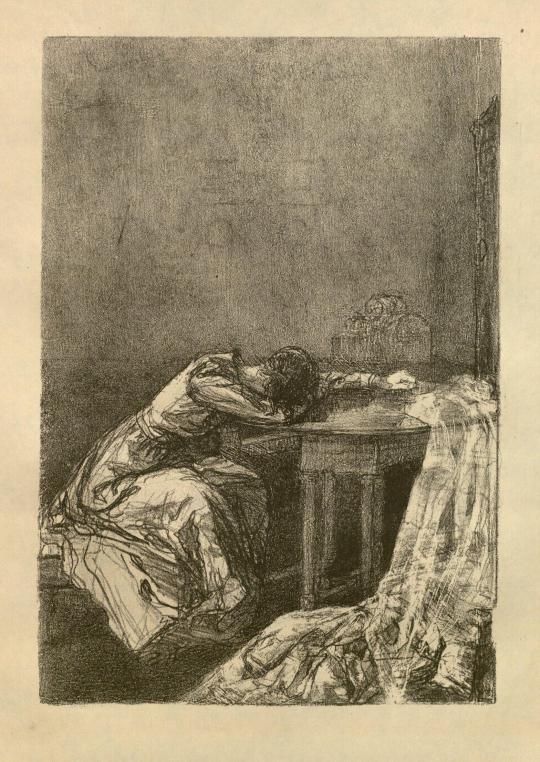
Jane Eyre despairing over her thwarted wedding, lithograph by Ethel Gabain, featured in Imprimerie Nationale’s 1923 edition of Jane Eyre.
‘This illustration depicts Jane weeping over her wedding dress after discovering that her groom, Mr. Rochester, was already married. While teaching in Brussels, Charlotte fell in love with her French tutor, Constantin Heger, a married man, but her love was not returned. She sent many letters to him with no response, sending her into depression that would often manifest itself in headaches.’
Source
31 notes
·
View notes
Photo

Famous Romantic Love Letters
If only I were a clever woman, I could describe to you my gorgeous bird, how you unite in yourself the beauties of form, plumage, and song!
I would tell you that you are the greatest marvel of all ages, and I should only be speaking the simple truth. But to put all this into suitable words, my superb one, I should require a voice far more harmonious than that which is bestowed upon my species – for I am the humble owl that you mocked at only lately, therefore, it cannot be.
I will not tell you to what degree you are dazzling and to the birds of sweet song who, as you know, are none the less beautiful and appreciative.
I am content to delegate to them the duty of watching, listening and admiring, while to myself I reserve the right of loving; this may be less attractive to the ear, but it is sweeter far to the heart.
I love you, I love you. my Victor; I can not reiterate it too often; I can never express it as much as I feel it.
I recognise you in all the beauty that surrounds me in form, in colour, in perfume, in harmonious sound: all of these mean you to me. You are superior to all. I see and admire – you are all!
You are not only the solar spectrum with the seven luminous colours, but the sun himself, that illumines, warms, and revivifies! This is what you are, and I am the lowly woman that adores you.
Juliette
Juliette Drouet to Victor Hugo, 1835
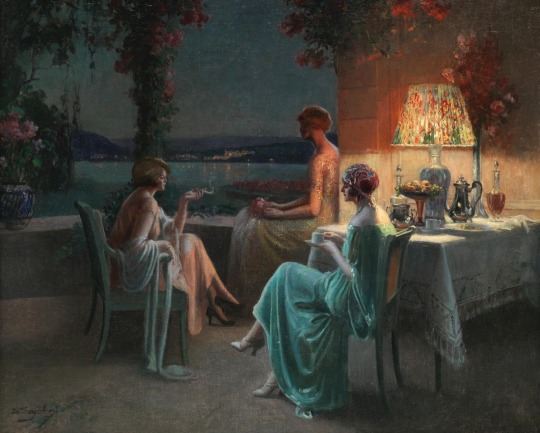
Oh My William! it is not in my power to tell thee how I have been affected by this dearest of all letters – it was so unexpected – so new a thing to see the breathing of thy inmost heart upon paper that I
was quite overpowered, & now that I sit down to answer thee in the loneliness & depth of that love which unites us & which cannot be felt but by ourselves, I am so agitated & my eyes are so bedimmed that I scarcely know how to proceed…
Mary Wordsworth to William Wordsworth, 1810

Monsieur, the poor have not need of much to sustain them — they ask only for the crumbs that fall from the rich man’s table. But if they are refused the crumbs they die of hunger. Nor do I, either, need much affection from those I love. I should not know what to do with a friendship entire and complete – I am not used to it. But you showed me of yore a little interest, when I was your pupil in Brussels, and I hold on to the maintenance of that little interest — I hold on to it as I would hold on to life.
Charlotte Bronte to Professor Constantin Heger, 1845

And now listen to me in turn. You have touched me more profoundly than I thought even you could have touched me – my heart was full when you came here today. Henceforward I am yours for everything….
Elizabeth Barrett Browning to Robert Browning

My Mistress and Friend,
I and my heart put ourselves in your hands, begging you to recommend us to your good grace and not to let absence lessen your affection…or myself the pang of absence is already to great, and when I think of the increase of what I must needs suffer it would be well nigh intolerable but for my firm hope of your unchangeable affection…
Henry VIII to Anne Boleyn, 1528
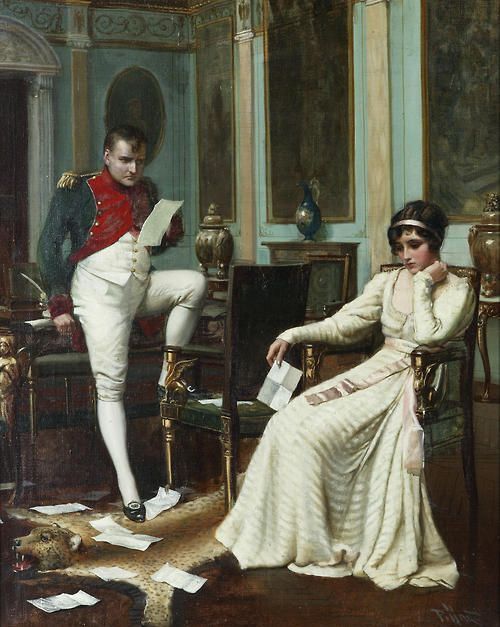
Paris, December 1795
I wake filled with thoughts of you. Your portrait and the intoxicating evening which we spent yesterday have left my senses in turmoil. Sweet, incomparable Josephine, what a strange effect you have on my heart! Are you angry? Do I see you looking sad? Are you worried?… My soul aches with sorrow, and there can be no rest for you lover; but is there still more in store for me when, yielding to the profound feelings which overwhelm me, I draw from your lips, from your heart a love which consumes me with fire? Ah! it was last night that I fully realized how false an image of you your portrait gives!
You are leaving at noon; I shall see you in three hours.
Until then, mio dolce amor, a thousand kisses; but give me none in return, for they set my blood on fire.
Napolean Bonaparte to Josephine, 1795
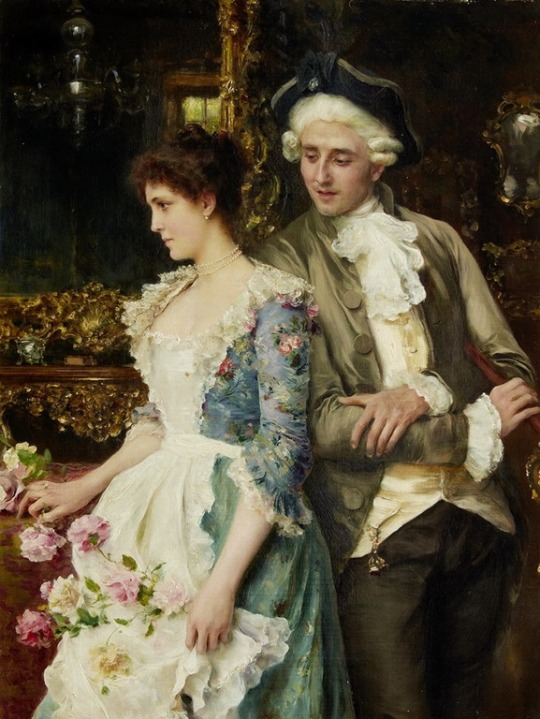
Spring 1797
To Josephine,
I love you no longer; on the contrary, I detest you. you are a wretch, truly perverse, truly stupid, a real Cinderella. You never write to me at all, you do not love your husband; you know the pleasure that your letters give him yet you cannot even manage to write him half a dozen lines, dashed off in a moment! What then do you do all day, Madame? What business is so vital that it robs you of the time to write to your faithful lover? What attachment can be stifling and pushing aside the love, the tender and constant love which you promised him? Who can this wonderful new lover be who takes up your every moment, rules your days and prevents you from devoting your attention to your husband?
Beware, Josephine; one fine night the doors will be broken down and there I shall be. In truth, I am worried, my love, to have no news from you; write me a four page letter instantly made up from those delightful words which fill my heart with emotion and joy. I hope to hold you in my arms before long, when I shall lavish upon you a million kisses, burning as the equatorial sun.
Napolean Bonaparte to Josephine, 1797
source
2 notes
·
View notes
Text
exactly two hundred pages in anna karenina and something just clicked in my head. alexei alexandrovich sort of parallels madame zoe heger [town square throws rocks at me]
#i say “sort of”!!!#we don’t know what went behind the scenes#but i imagine (based off of charlotte’s accounts of her in the shape of madame beck) that she was probably colder to constantin when+#suspicions rose. the difference is that alexei didntbreak the connection (he probably will in the later pages dont spoil me) while she did#“it was too dreadful for him to recognize his real position and in his soul he closed locked and sealed the drawer in which he kept his#feelings for his family—that is his wife and son”#<- how SAD!!!!!#im a charlotte supporter by heart but that doesnt mean i cant feel bad for mme heger .#she did all that she could to protect his husband+family’s reputation.. aint no fucking way she would allow a scandal to ruin it all#and same goes for alexei#“okayy what the fuck are you talking about” this is in light of the speculation that mme heger ripped the love letters#and so we wouldnt really know if charlotte’s love was unrequited or not#tbf even if it was unrequited i kinda get mme heger bc ppl might misconstrue either way and twist it into smth else#SO to be safe and clear she did what she did#in short it’s constantin heger’s fault JDJGKSNSN#rambling on#reading tag#anna karenina#villette#charlotte brontë#constantin heger#what in the tmz shit is this why am i speculating the lives of real (and DEAD) people
6 notes
·
View notes
Text

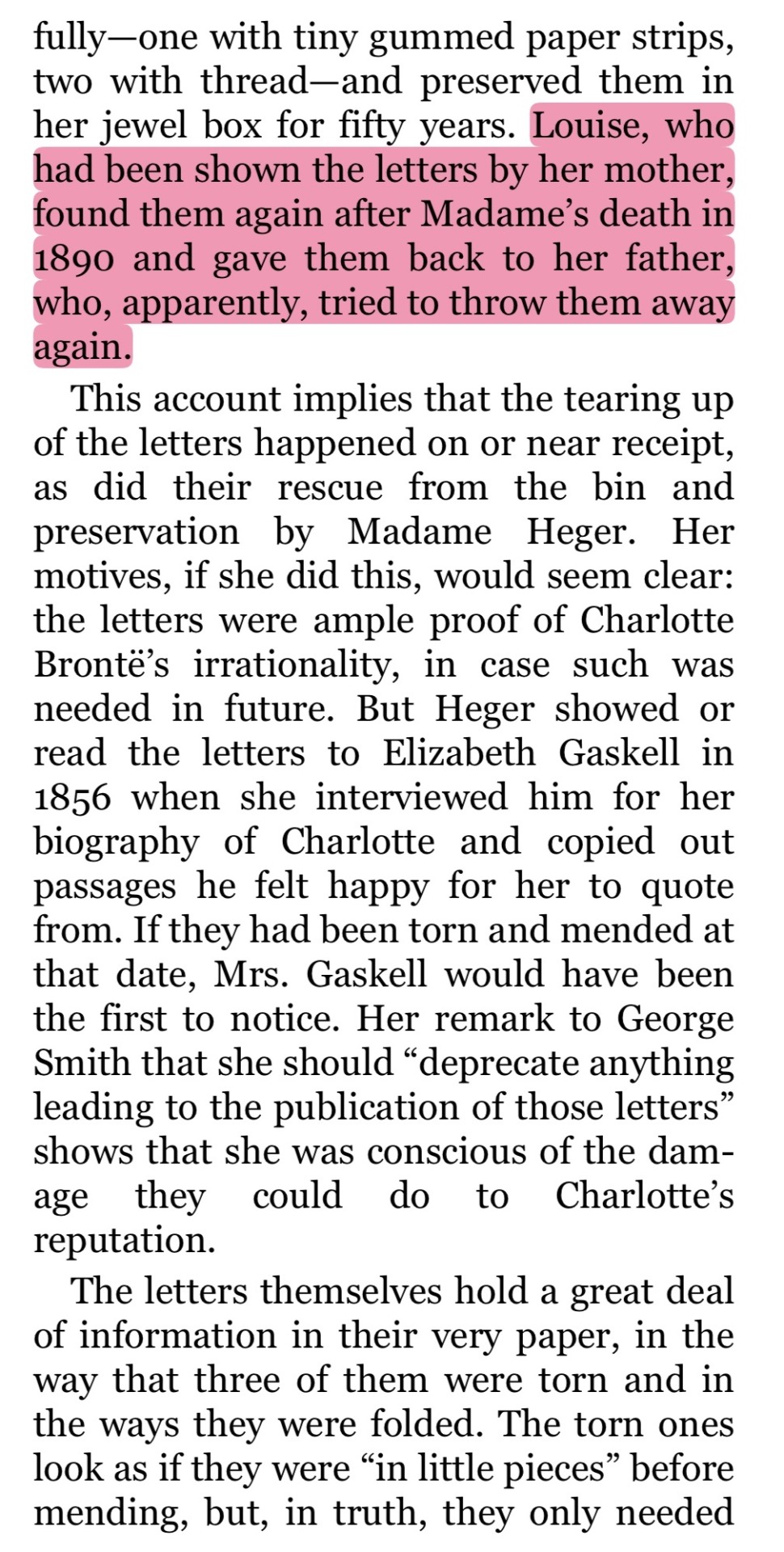

Mme Heger tore up those letters herself and then spread the rumor (that people still take at face value) that it was M Heger who got rid of them right away so she could discredit Charlotte’s ~accusations, which tbh I always found a little too convenient to be true
#charlotte brontë#constantin heger#i can only see two possible reasons why heger kept those letters for years: he forgot about them somewhere bc he didn’t gaf or he was hiding#them from his wife#either way he showed them to gaskell in 1856#so they were still intact a decade later#and ASKED FOR HIS LETTERS TO CHARLOTTE RIGHT AFTERWARDS#because he was sure she’d kept them!!#which to me proves that he HAD written quite a few conpromising letters himself or he wouldn’t have asked for them#ig i could see him trying to get rid of them after gaskell’s visit? but why?? after all that time#i mean yes he was obviously worried about something (given his enquiry about his own letters to charlotte) but her letters to him weren’t-#compromising to him in any way#it only makes sense for mme to have destroyed and then taken possesion of those letters: she had a lot to lose if the ‘truth’ ever came up#still I really don’t buy charlotte singlehandedly embarrassing herself over this man#it takes two to tango ect ect#charlotte x heger
9 notes
·
View notes
Text
Real Life
So, why did Charlotte Bronte write Jane Eyre the way she did?
In 1842 Charlotte Bronte and her sister Emily travelled to Brussels and enrolled at a school, a pensionnat. As the sisters planned to start their own boarding school, they first needed to expand their education. They were able to pay for their board and tuition by teaching--Charlotte taught English, Emily music. The school was run by a married couple, the Hegers. Constantin Heger was a teacher and, by all accounts, one very passionate about his profession. Charlotte had a massive crush on him. It's not hard to understand. He was the one who first recognised her talent for writing. In October 1942, Elizabeth Branwell, aunt to Bronte children, who had lived with the family since their mother's death (she was the mother's sister), died and Charlotte and Emily left the school for home. Charlotte returned to Brussels on her own in January 1843 and stayed there for a year.
The extent of her feelings was not known until The Times published Charlotte's letters to Prof Heger in 1913. The letters were torn and glued back together again. They are also rather one sided, it appears Heger rarely responded. Here's an excerpt from one dated January 1845 (source):
all I know – is that I cannot – that I will not resign myself to the total loss of my master’s friendship – I would rather undergo the greatest bodily pains that have my heart constantly lacerated by searing regrets. If my master withdraws his friendship from me entirely I shall be absolutely without hope – if he gives me a little friendship – a very little – I shall be content – happy, I would have a motive for living – for working. Monsieur, the poor do not need a great deal to live on – they ask only the crumbs of bread which fall from the rich men’s table – but if they are refused these crumbs - they die of hunger - No more do I need a great deal of affection from those I love – I would not know what to do with a whole and complete friendship – I am not accustomed to it – but you showed a little interest in me in days gone by when I was your pupil in Brussels – and I cling to the preservation of this little interest – I cling to it as I would cling on to life.
Do you see it? "I will not resign myself to the total loss of my master's friendship". "Monsieur, the poor do not need a great deal to live on - they ask only the crumbs of bread."
Charlotte Bronte wrote an emotionally unavailable man as the main heroine's love interest, because her own love interest was unavailable--he was married. It also explains Jane never calling him Edward--Charlotte never got to call the man she loved by his first name.
The age difference between Charlotte and the professor was not as big as the age difference between Jane and Rochester--only 7 years. But at the time of the publication of Jane Eyre in 1847, he was 38--the same age as Rochester in the book.
I wonder, when she came back to the pensionnat in January 1843, did he ask her where she had been? Did she answer, with her family as her aunt died, and did he say to her: "a true Charlottian reply"?
Was the geography fail in the With a Proposal Like This, Who Needs Death Threats post a slip of a pen? When she returned home for good, Charlotte was separated from Heger by the English Channel. In the book, had Jane taken the job in Ireland, she would have been separated from Rochester by the Irish Sea. (I know it was a fake job, but work with me here.) Yet Rochester talks of the Channel. Did Charlotte make this mistake subconsciously? (Otherwise it's got to be the Watsonian explanation of Rochester making a slip of a tongue--he was used to being separated from his mistresses by the Channel. He said himself he never went to Ireland.)
Why a Mad Wife?
The idea of a madwoman most likely came from Charlotte's visit to Norton Conyers in North Yorkshire. The place has a legend of such a madwoman confined to the attic. That is well known. However, we're not talking about mad women inhabiting Norton Conyers. We're in my abyss of dark theories.
Constantin Heger's wife was Claire Zoe Parent. She was the one who owned the school. According to this source, she made him sign in the ledger for his salary.
So she appeared to be the one with the wealth.
I wonder, what colour was her hair?
Portrait of the Heger family by Ange Francois, 1846:
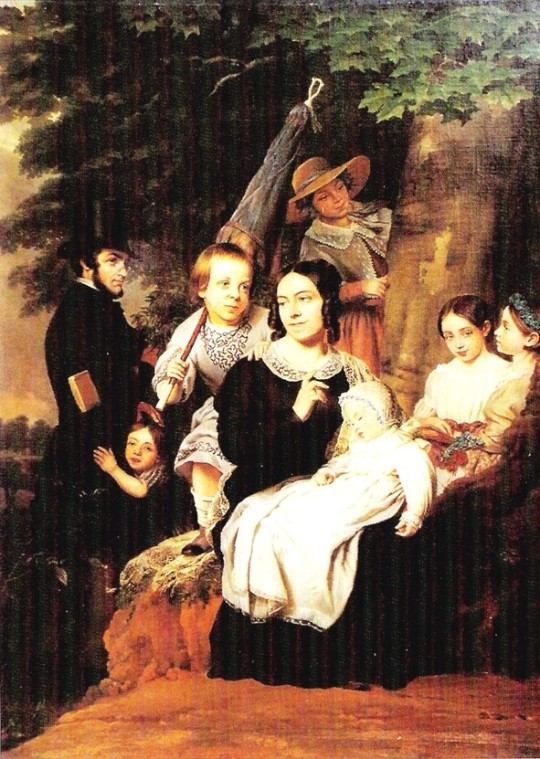
Blanche and Bertha are similar, you say, they both have dark hair? Will Blanche end up in a nuthouse?
It turned out to be much simpler than that.
I save the best item for last.
The hands down most baffling bit of the narrative, so irrelevant and nonsensical, it makes one scratch one's head so much one risks one's hair falling out, in a desperate and feverish attempt to understand why in the ever living fuck Charlotte included it in her book.
Bertha being five years older than Edward. Why is it a thing?
Constantin Heger's year of birth: 1809.
Claire Zoe Parent's year of birth: 1804.
I rest my case.
So wait, the entire book is a wish fulfilment?
Looks like it.
*Shrug*
I don't hold it against her. It's not a bad thing. After all, male writers do it too. Indulge yourself, girl. We've all done it, all of us that ever dabbled in writing. (Not many of us are likely to have our works elevated to the status of classics, but hey, a book is a book.)
Sometimes it helps just to it write it all out, get it out of one's system. Heck, I'm doing it right here!
Why so bitchy then?
Well, sometimes you gotta. And there is the fact that after the death of Anne, Charlotte prevented re-publication of her sister's novel The Tenant of Wildfell Hall.
2 notes
·
View notes
Photo
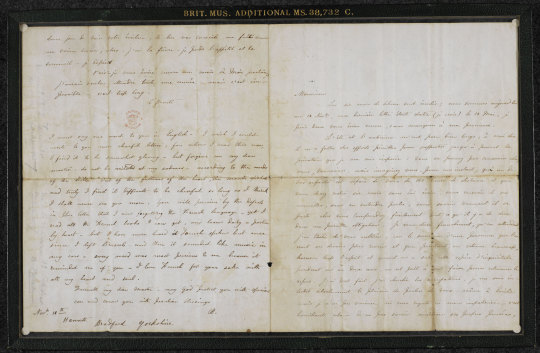



Four letters of Charlotte Brontë to Prof. Constantin Heger, 24 July-18 November 1844-45? (x.)
333 notes
·
View notes
Text
sometimes there’s nuances of jane and rochester’s interaction that is just so weird in such a specific way that i start wondering what actual real life interaction between charlotte bronte and constantin heger it was ripped from, and i’m just like, oh charlotte. oh man. oh yikes.
(disclaimer: i’m sorry for becoming jane-ing charbro. but how do you not in this particular sitch?)
#it's one thing when rochester is a fictional person ...#but a REAL MAN whose wife IS JUST WALKING AROUND LIVING LIFE FREELY?#also can you imagine being mrs. heger and reading jane eyre asjfl;kadj;ladkfjal;sdkjfa;dl#'his wife is WHAT? his wife jumped off the WHAT?'#dollsome's deep thoughts#jane eyre
25 notes
·
View notes